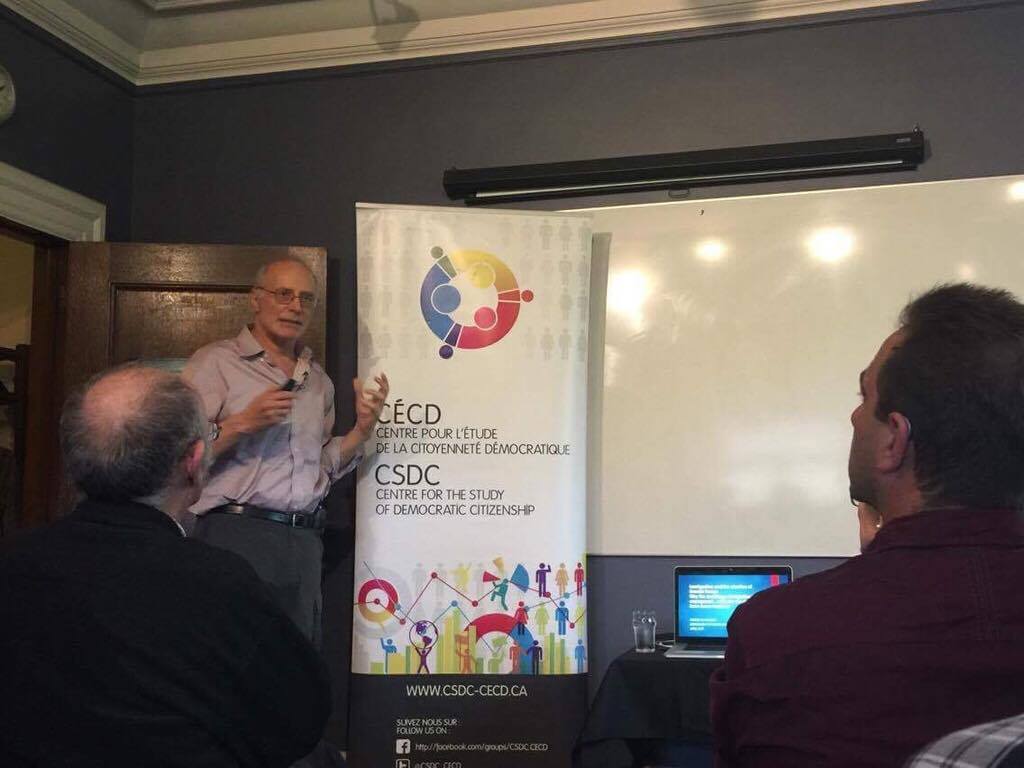Both in the United States and in Europe, the rise of populist political movements and candidates has brought the issue of immigration to the forefront of politics. Seeing as the topic is one of importance to students, the Centre for the Study of Democratic Citizenship (CSDC) hosted, on May 26, UCLA sociology professor Roger Waldinger at McGill to give a talk on the politics of immigration in the United States. His talk consisted of an overview of immigration politics, starting in the Ronald Reagan era of the 1980s, up through the present. Before the talk, Waldinger spoke to The McGill Tribune and explained what compelled him to share his perspective on the politics of immigration.
“It seems to me that this was an occasion when my own area of expertise is actually at the center of the news,” Waldinger said. “In a way I wanted to challenge myself. Do I have something important to say about this political issue? And I think I do.”
During the talk, Waldinger explained that after the 2012 presidential election, the Republican National Committee released a report to address why they believed they had lost, and concluded they needed more support from immigrant voters.
“[The need for more support from immigrant voters] was the assumption going into [the election],” Waldinger said. “And of course, right from the beginning, Trump breaks with it, and shortly thereafter he goes into how he will implement his plan with his notorious claim that he would build a wall.”
Waldinger outlined the sociology of migration along with the cyclical nature of immigration policy, and categorized voters and politicians into two broad groups: Restrictionists and immigrationists. While the former group would rather see strict limitation of immigration, the latter group support an increase in immigration. Both of these groups, Waldinger explained, have left-wing and right-wing elements with different sets of interests.
“[Immigrationists and restrictionists] are coalitions that bring together the right and the left […] and what we see here are two very different types of mobilized interest groups,” Waldinger said. “On the one hand, business […] is not particularly concerned with the conditions or the rights that those workers from elsewhere might enjoy […while] the left wing of the coalition is concerned about family reunification and admissions for refugees.”
According to Waldinger, the National Academy of Sciences overlooked how the attitudes of the native population in the US changes in response to immigration. This conflict between immigrationists and restrictionists is now in the spotlight in American politics.
“Immigration produced international integration, but international integration is exactly what a large portion of the native-born population did not want,” Waldinger said. “That conflict between international integration on one hand, and a preference for migration control policies that would disintegrate the US from the broader global economy made immigration, in effect, a source of national disintegration, and put it at the center of American politics.”
After the talk concluded, Dietlind Stolle, director of CSDC and professor of Political Science at McGill, emphasized that immigration is not the only reason President Trump was elected.
“The rise of populism also […] is related to the state of the economy and how generations do compared to previous generations,” Stolle said. “[….] It is related to a general dissatisfaction when you are not doing well and you see people with certain privileges in society.”
The talk was met with satisfaction by attendees, including Matvey Lamonosov, a PhD candidate in the department of Sociology.
“Roger Waldinger is a recognized and very well known authority on immigration, on the theory and especially the political aspects,” Lomonosov said. “[It] would be very interesting to have more of these events […] so I definitely we need to talk about these issues. They are important not only theoretically and politically but in our everyday lives.”









